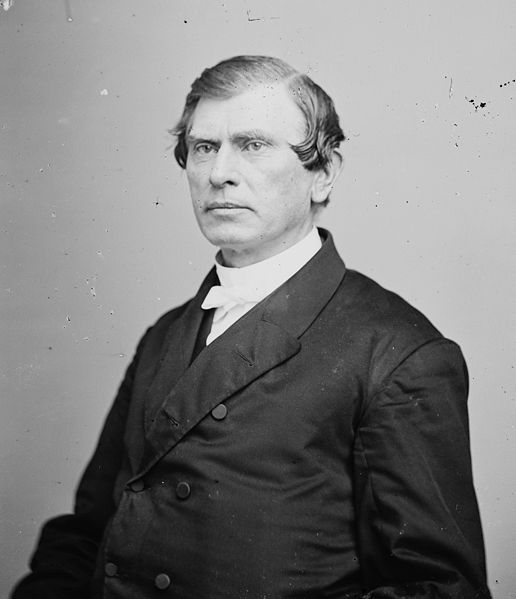"Now, Bishop, Pray:" Matthew Simpson, Preacher of the Gospel
By Kenneth Cain Kinghorn
We welcome this guest post from Dr. Kinghorn, professor emeritus of church history at Asbury Theological Seminary. You can read more about Simpson and other fascinating Methodists in CH issue 114, available here!

Matthew Simpson (1811–84) was born into a devout Methodist family in Cadiz, Ohio, and Francis Asbury baptized the infant. At the age of eighteen, Simpson gave his life to Christ at a Methodist camp meeting. As a young adult, he studied medicine, and in 1833 he became a medical practitioner. After only a year in this work, he entered the ministry in the Pittsburgh Annual Conference of the Methodist Episcopal Church. After pastoring four years, he became president of Indiana Asbury University (now DePauw University). In 1848, he accepted the editorship of Methodism’s Western Christian Advocate. In that position, he supported abolitionism, urged the church to include lay delegates in its Annual and General Conferences, and backed the founding of a Methodist Deaconess Order. Simpson was among the first to speak in favor of starting a Methodist theological seminary. In 1852, the church elected him to the episcopacy, and seven years later he assumed the additional responsibility of Garrett Biblical Institute’s presidency.
Simpson gained wide recognition as a superior preacher, and many compared him to Charles Spurgeon. Simpson’s sermons, spoken in “the plainest and most didactic style,” lifted both the educated and uneducated into an awareness of God’s presence. Often, his hearers shed tears of wonder as he preached. An underlying theme of his sermons was that Christ within us can release our undiscovered gifts and lift us to our highest potential. In 1857, Simpson preached in Berlin at the World Conference of the Evangelical Alliance. In 1866, he addressed the centennial celebration of American Methodism, and during the winter of 1878–79 he delivered the Yale Lectures on Preaching. In 1881, he gave the opening address at the first ecumenical Methodist conference in London.
Bishop Simpson was a friend and confidant of President Abraham Lincoln. The president and his Secretary of War, Edwin Stanton, frequently summoned the bishop to Washington for consultation. Stanton often elbowed him into his private office and said, “Now, Bishop, pray.” Lincoln said of him, “He sees things as they are. He has no axe to grind. I can depend on him.” Lincoln accepted Simpson’s nominations of a number of Methodists to national offices, although he declined personal invitations to high governmental offices. Simpson preached Lincoln’s funeral sermon in Springfield.
Simpson wrote and edited articles for the Cyclopaedia of Methodism (1878). This 1,027-page work contains information about the rise and development of Methodism in England, North America, and other countries. The volume also treats Methodist doctrine, includes numerous résumés, and describes Methodism’s educational institutions. The Cyclopaedia served as the most definitive Methodist reference work until the 1974 publication of the two-volume, 2,814-page Encyclopedia of World Methodism, edited by Nolan B. Harmon.
Simpson’s lasting legacy was his consistent integrity, balanced ministry, denominational influence, and quality work. After his death, the widely circulated Methodist Quarterly Review (January 1885) printed tributes to Matthew Simpson. The journal’s editor, Daniel W. Whedon, concluded the tributes with his own counsel for American Methodists: “Nothing but lack of moral convictions, spiritual earnestness, and professional enthusiasm can bring about a falling away from the eloquence of the fathers in the Gospel.”



